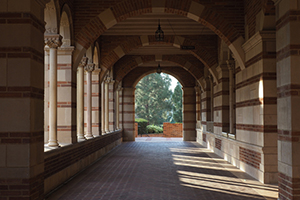
By Quintina Barnett Gallion, AACRAO Associate Executive Director.
Higher education used to be for the select few. A privilege to prepare the elite to lead. However, with increased, albeit inequitable, access, higher education suddenly became a right in the 1960s and 1970s. Today, many view a postsecondary education as a requirement if they are to thrive socially and economically.
“Deeply embedded in the American psyche is the idea that colleges and universities provide valuable education that offers the best pathway to realizing the American Dream. The expansion of college programs has meant that some degrees inevitably misalign with professional opportunities, leaving graduates underprepared to enter the workforce. Outdated measures of quality, coupled with virtually zero transparency of value, have distorted the postsecondary education marketplace….With a fresh, innovative mindset and a willingness for accountability, we can ensure that students will receive a positive return on their college investment."
-Rep Burgess Owens (UT-04), Chairman of the House Education and Workforce Committee’s Subcommittee on Higher Education and Workforce Development
The prevailing post-secondary education model, however, is keeping pace with neither the needs of learners nor the demands of the workforce. The demographic of learners has shifted across the globe once again. They are more mobile and expect to be able to engage in preferred learning opportunities represented by credentials that best suit their personal and career goals.
Documenting and communicating that attainment is imperative to the value for the learner and for the employer. By adopting a more intentional, global, and strategic approach to credential innovation, institutions, and organizations can offer equitable and accessible programs and opportunities that prepare all learners for the workforce and beyond.
Operationalizing the AACRAO Mission
AACRAO is stepping forward to lead this national, systemic innovation. Since 1910, AACRAO members have shepherded learning records to document and recognize learning and skills while managing the related institutional systems. As guardians of data and record integrity, the Association and its members have developed and pride themselves on their reputation of neutrality and integrity. Our leadership in this transformation is a natural extension of our history.
This is why we aim to build upon the current promise of our work by facilitating the transfer of academic credits between institutions. It is why we're committed to salvaging credits for learners who've earned some credits but no credential, as well as those displaced by global events. It is why we strive to open up new avenues for learners to earn credit for prior experiences and establish innovative structures that can efficiently transfer learners' skills data across various systems.
It is work records and academic services professionals, AACRAO members, have always done. We believe in higher education. We are strategically positioned to strengthen its value proposition and move it forward through the lens of Learning Mobility.
Living Our Values
Learning Mobility is a Learner-Centered innovation, where systems, processes, programs, and initiatives must be designed around the needs and best interests of the learner of today and the future at every stage of their journey. It is the embodiment of our values and challenges us to pursue equitable outcomes, interoperability & open standards, and the strengthening of the value of higher education. Looking forward, our work will embrace that pursuit:
AACRAO is working nationally and internationally to increase Equitable Outcomes - All systems, processes, programs, and initiatives must enable educational, social, and economic mobility for people with varying abilities, preparation, and skills. This supports pathways to better employment opportunities and to further education and training.
This necessitates a commitment to Interoperability & Open Standards - All technology must use open standards and common ontologies/frameworks to enable data to be machine-readable, exchangeable, and actionable across technology systems and, when appropriate, on the Web. It must support combinations of data from multiple sources, enable human interoperability, and be understood by people in different occupations and industries from diverse backgrounds.
When we do this well, we Strengthen the Value of Higher Education - In a knowledge-based economy where being highly skilled and experienced is valuable currency for success and economic growth, education serves as an accelerant to credential attainment. Documenting and communicating that attainment is an imperative and AACRAO members are critical to this work.
In the coming months, AACRAO members will see a new curriculum, new support mechanisms, and focused, continuous professional development opportunities that enable our professions to spearhead institutional transformations for the benefit of learners. The membership vote to eliminate roster limits increases the access to these newly focused benefits.
Additionally, recognizing that AANAPISIs, Community Colleges, HBCUs, HSIs, MSIs, and Tribal Colleges predominantly serve learners who stand to gain the most from this focus, the Association is examining its equity priorities to determine the key areas in which to invest in order to have the greatest impact. Keep an eye out for the announcement of the AACRAO Racial Equity Advisory Group.
Interested in staying up to date? Check your email preferences to ensure you’re subscribed to “Learning Mobility”.